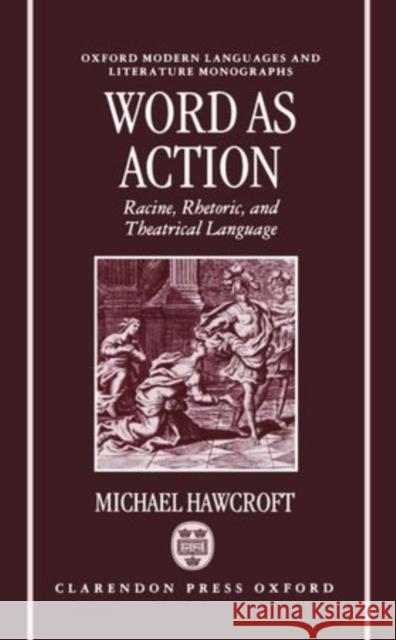Word as Action: Racine, Rhetoric, and Theatrical Language » książka
Word as Action: Racine, Rhetoric, and Theatrical Language
ISBN-13: 9780198151852 / Angielski / Twarda / 1992 / 288 str.
Hawcroft presents an exploration of the theatrical qualities of the language of France's greatest tragedian, Jean Racine, taking as its analytical tool two neglected parts of rhetoric--inventio and dispositio. Racine's dialogue is exciting, Hawcroft argues, because he makes persuasive interaction of characters a key feature of his dramatic technique. This book shows how Racine deploys persuasion in well-defined contexts: trials, embassies, and councils; informal oratory as protagonists try to manipulate each other and their confidants in order to make their own views and wishes prevail; self-persuasion in monologues; and narrations, often used by characters with persuasive intent. The book draws illuminating and provocative comparisons with other playwrights and offers a closer and better documented description of the specific nature of Racine's theatrical language than has previously been available in any one study.











